
- Member Login
- Connect with Us
- Like us on Facebook
- Follow us on Twitter
- Sign Up For Our Jobs Newsletter
The first tour operator went into business in England in 1758, and is still in business today. In Europe, pleasure travel started in earnest during the 1840s, when Thomas Cook began conducting tours to Paris and later around Europe. By the 1850s, railroad tours were already in operation. Modern tour operators – companies that organize group tours and independent travel packages — date back to the mid-nineteenth century, and most likely have their roots as ticket agents for steamship lines and railroads. In addition to selling passage, the agents were eventually called upon to develop itineraries and secure accommodations for their wealthy clients. Out of this grew the organized business of selling planned tours to groups of travelers.
Through the 1930s tour wholesaling continued to grow, but that happened slowly, since comfortable and affordable means of passenger transportation were not widespread, and travel was costly. The post-World War II period, beginning with the late 1940s and early 1950s, marked a dramatic turning point for the tour operator industry. The introduction of modern long-range commercial aircraft and the development of the interstate highway system both opened long distance travel to millions of middle class travelers. Add to that the growth of low cost airlines, increased access to airports, and the ability to travel more cheaply, and the travel bug sent millions of people all over the planet.
The media have popularized aspects of touring and made them appear accessible to the public, which has helped to increase the number of tour travelers. The television program “The Love Boat” inspired middle class travelers to take a cruise. The 1969 film, “If it’s Tuesday, this must be Belgium,” based on Caravan Tours, popularized over-the-road bus travel.
Today there are over 600 tour operators in this country, plus hundreds in other countries. Most of them wholesale their tours, that is, sell them through travel agents, or sell them directly over the internet. Even in this day of the internet, where travelers can more readily create their own itineraries, tour operators still have the advantage of bulk purchases that reduce costs, and of inside knowledge of vendors and destinations.
To view the rest of this page, you will need to be a Premium Member.You are visiting the Members Section as a Free BASIC Member . You will only have access to a limited amount of Job Hunting Tools and Content. For full access you will need to upgrade to a PREMIUM MEMBERSHIP. Upgrade Today
Guides Visit Cool Places!
You are visiting the Members Section as a Free BASIC Member . You will only have access to a limited amount of Job Hunting Tools and Content. For full access you will need to upgrade to a PREMIUM MEMBERSHIP.

Encyclopedia of Tourism pp 1–3 Cite as

Travel agency and tour operation
- Zongqing Zhou 3
- Living reference work entry
- First Online: 01 January 2015
1219 Accesses
Travel agencies and tour operators are two related but can be independent business models that operate as intermediaries between suppliers and tourists. In many cases, travel agencies are also tour operators and vice versa, particularly in countries other than the United States . This is understandable considering the history of their evolution in different countries.
Structure and history
Travel agencies can be defined as a sector that books, sells, and arranges travel , tour , and accommodation services provided by suppliers of the industry (Bhatia 2013 ). Some are primarily engaged in making travel arrangements and reservation services. These agencies include online-only booking systems such as Expedia.com. Others offer their own packages and thus act as tour operators.
Tour operators are businesses that plan, package, market, and sell multiple vacation elements, including air or surface transportation and accommodations (USTOA 2014 ). Package tours are generally sold through travel...
This is a preview of subscription content, log in via an institution .
Bhatia, A. 2013 The Business of Travel Agency and Tour Operations Management. New Delhi: Sterling Publishers.
Google Scholar
Meyer, J., and C. Oster 1987 Deregulation and the Future of Intercity Passenger Travel. Boston: MIT Press.
Stevens, L. 1990 Guide to Starting and Operating a Successful Travel Agency. Clifton Park: Cengage Learning.
USTOA 2014 United States Tour Operators Association www.ustoa.com (20 April).
Zhou, Z. 2004 E-commerce and Information Technology in Hospitality and Tourism. New York: Delmar.
Zhou, Z., and L. Lin 2000 The Impact of the Internet on the Use of the Print Brochure. Proceedings of the CHRIE’s Annual Conference, 19-22 July, New Orleans, Louisiana.
Download references
Author information
Authors and affiliations.
College of Hospitality and Tourism Management, Niagara University, 5795 Lewiston Rd, New York, 14109, USA
Zongqing Zhou
You can also search for this author in PubMed Google Scholar
Corresponding author
Correspondence to Zongqing Zhou .
Editor information
Editors and affiliations.
School of Hospitality Leadership, University of Wisconsin-Stout, Menomonie, Wisconsin, USA
Jafar Jafari
School of Hotel and Tourism Management, The Hong Kong Polytechnic University, Hong Kong, Hong Kong SAR
Honggen Xiao
Rights and permissions
Reprints and permissions
Copyright information
© 2014 Springer International Publishing Switzerland
About this entry
Cite this entry.
Zhou, Z. (2014). Travel agency and tour operation. In: Jafari, J., Xiao, H. (eds) Encyclopedia of Tourism. Springer, Cham. https://doi.org/10.1007/978-3-319-01669-6_206-1
Download citation
DOI : https://doi.org/10.1007/978-3-319-01669-6_206-1
Received : 08 December 2014
Accepted : 08 December 2014
Published : 25 September 2015
Publisher Name : Springer, Cham
Online ISBN : 978-3-319-01669-6
eBook Packages : Springer Reference Business and Management Reference Module Humanities and Social Sciences Reference Module Business, Economics and Social Sciences
- Publish with us
Policies and ethics
- Find a journal
- Track your research

Start Your Journey Here >>>
The Evolution of the Tour Operator

Challenges and innovations from 2003 to 2023 and beyond
Twenty years ago, I purchased a failing rafting operator in Scotland. The landscape of multi-day and day tour operations was vastly different back then.
The early 2000s were marked by various challenges and pain points for tour operators, from traditional offline booking methods that did not scale to issues with real-time coordination and a lack of digital presence that meant finding new customers was a hard offline old-fashioned marketing and sales job. The industry has undergone a substantial transformation since then. Today, with the advent of technology and changing customer expectations, new best practices have emerged to address these pain points. Looking ahead, these practices are evolving faster than many operators can keep up with.
In 2003, the reservation process for tours was often cumbersome and time-consuming. Customers had to book their tours through travel agencies that were still mainly paper-based or directly with the operator via phone or fax. Yes, the fax was a big thing back then. I remember getting them from hotels, agents and schools to name a few. This method was prone to errors and often was just the start of a communication train that went on and on.

Tourpreneur is designed to share tips and advice to help more tour business owners be successful.
Communication was another significant challenge. Today it has improved dramatically but is still far from fixed. Real-time communication is still a pipedream for many tour operators. We may have real-time booking on our websites and out to our retail partners, but how many tour operators can say they have real-time booking of all the transport, accommodation, restaurant and activity partners we use? Back in the day, it was phone calls and fax a plenty and no mobile phones. Today, so much is still done in the supply chain by mobile phones. Real-time updates were non-existent in the early 2000s and, in many ways, still are today throughout the whole supply chain. This can obviously lead to confusion and dissatisfaction when inevitable changes occur.
Digital presence
The customer of today is mobile addicted, and expectations are high. It is not the travel industry that leads on this, it is all the other sectors of society that serve people, from retail to takeaway food. It is online, it is simple, and it delivers in real-time.
The tour operator industry in 2003 lacked a strong digital presence. For many, they had zero online presence as most operators didn’t have websites and those who did often offered limited information. Online marketing was in its infancy, making it harder for operators to reach a wider audience and compete in the global travel marketplace, which was going through rapid growth. I remember being astonished that all the booking confirmations were being sent out by post to the rafting operator I purchased. The reason I was given was that most folks did not have email. The reality was it was the minority of our guests that did not have email.
Fast forward to today, in 2023, and the tour operator industry has transformed significantly. The advent of technology and the digital revolution have brought forth new best practices that address many of the pain points from 20 years ago.
First, online booking systems, which started to surface around 2005, have streamlined the reservation process. I adopted SaaS reservation technology in 2007 and never looked back. The organizational change to the business was great. It allowed us to expand to several different countries rapidly. It allowed me to see what was happening daily within the business, our operations, marketing and finance in real-time no matter where I was in the world. These reservation systems allow customers to book tours at their convenience, offering real-time availability and automated confirmation. This has significantly reduced booking errors and improved the overall customer experience. They also now allow retail partners to see real-time availability. Back then, the choice was limited to a few software as a service systems, but today tour operators have the choice of a few hundred SaaS systems to help them manage their tour operations.
Communication has become more efficient and instantaneous, thanks to digital platforms. Tour operators can now provide real-time updates via emails, messenger apps, and social media, ensuring that customers, suppliers, and partners are always in the loop. This has come with some pros and cons as customers use a fast range of communication tools now. If operators want to make sure they are addressing their customer’s needs in the best way, they need to be able to communicate via all these different methods in as close to real-time as possible. If tour operators have the resource and are technology friendly, then this is easily done, but for those small operators who are often out-guiding, then this is a struggle. AI chatbots, implemented correctly, are a godsend for small operators as they will enable them to give a 24/7 presence to communicate with potential guests, which, if they are out-guiding, is impossible.
Looking toward the future
Having a robust digital presence has been a must for tour operators for around 10 years now. Websites are not just informational; they are designed for engagement, complete with online booking capabilities, detailed tour information, customer reviews, and vibrant visuals. An outstanding digital presence is no longer optional. It is a requirement to stay in the tour operator industry. Online marketing, too, has become a key strategy, with operators leveraging SEO, social media, and email marketing to reach potential customers and stay engaged with past customers. Customer Relationship Management (CRM) systems are widespread and very affordable or even free. Especially for multi-day tour operators, these systems should be the jewel in your back-end business operations. Customers are expensive to acquire, and in an industry that sufferers greatly from irregular purchases, it is essential to manage the best possible communication across the whole customer journey from dreaming, planning, booking, experiencing and sharing. The very best operators often have repeat bookings happening over many years by ensuring attention to detail is applied to the right people at the right time with the right information.
Looking toward the future, technology will continue to play an even more pivotal role than it does today. The tour operating industry is going to be shaped by society-level changes in how guests use technology. Artificial Intelligence (AI) will streamline operations further. Today the ability to use it to increase productivity is huge. However, that is just stage one and one all tour operators should adopt and adapt quickly. It will make you more productive and save substantial costs and allow you to produce content and information for your costumes at a scale that may be limited resources were preventing you from doing before. AI can be used to personalize customer experiences, from offering recommendations based on past bookings to answering customer queries via chatbots. The strategic value of AI is not the productivity gain but the way it will enable tour operators to interact with customers at scale using the unique data that each individual tour operator possesses. Today that data resides in many documents and processes and in individual owners and guides heads, but that data is a superpower if operators want to deploy AI in a strategic manner that will not only allow them to expand their operations but critically defend against some serious completion that is coming from much bigger technology companies and travel brands.
A tour operator’s unique advantage is in the person-to-person relationships that they nurture and deliver. However, AI technology will also disrupt here as self-guided tours provided by big travel brands guided by digital tour guides start to scale. Tour operators, especially day tour operators, have to be aware of this and start to plan how they can deliver more value going forward. An example would be a hybrid tour with a live guide doing a couple of hours and an AI guide doing a couple of hours.
Virtual Reality (VR) and Augmented Reality (AR) also hold great potential. VR can offer virtual tours, allowing customers to explore destinations before booking. AR, on the other hand, can enhance the actual tour experience, providing interactive information about sites and attractions. These, to date, have not made great inroads into tours, but they have in attractions, and it is only a matter of time before they start to have a bigger impact on the tour industry. High-priced multi-day tours that want to really engage with customers in the dreaming and planning phases of the customer journey should explore how these technologies can help with that.
More sustainable practices are needed
Sustainability is another factor that is expected to influence best practices in the tour operator industry. It may have a more defining impact than technology. Global travel numbers are expected to double by 2050, just 27 short years away, so generating demand for travel is not a challenge the industry faces. It is how we manage that massive demand in a way that serves the planet, the destinations and the people that live in those destinations. As more destinations and the people who live there become aware of the benefits and costs of tourism and its environmental impact, tough industry-changing decisions will be made. We are already seeing the start of this across many cities in the world with new policies restricting tourism numbers. Tour operators will need to adopt more sustainable practices and be able to prove them when requested not just by the travelling public but increasingly by national and local government legislation.
The tour industry has come a long way from 2003 to 2023. The advent of technology and evolving customer expectations have largely been addressed. However, many tour operators still lag in this digital-first world, which is understandable as very few entered the industry to be focused on technology. The challenges that once plagued operators may have technology solutions, but the world does not stand still. As an industry, we are still behind our customers in their use of technology. To thrive, we must do what we can to catch up and deliver on customer expectations, not just on the outstanding experiences that the industry delivers face to face but also in the digital environments that billions of people spend many hours a day in.
As we look ahead, the industry is set to continue its transformation, adopting even more innovative practices to enhance customer experiences and ensure sustainable operations. The journey of the past two decades is a testament to the industry’s resilience and adaptability. We have enjoyed great growth as an industry and recognition as the best part of the overall travel industry. Tours and experiences are why people travel. The changes in the industry over the next 20 years will dwarf the last 20. Most, if not all, of the changes in the last few decades, have been around communication, booking, marketing etc. The next 20 years will see much more of that at hyper speed, but critically the experience product that we all provide is actually going to change in ways that are equally exciting but challenging.
Today is the best possible time to be a tour operator of day or multi-day tours, and for many, both. However, digital awareness and ability are now a must-have if tour operators are going to deliver on the opportunity they have been presented with.
linkedin.com/in/petersyme/
RELATED ARTICLES

Lone travel trends are on the rise and there are ways operators can accommodate soloists in every stage of their...

Activities are enormous components of digital nomadic lifestyles and should be creative to attract traveling...

I recently sat down with Georgette Blau, the CEO of On Location Tours, a hugely popular tourist attraction and one of...

One-on-one interview with Nasi Peretz at Anchor Anchor has quickly become a major player in the business operations...

Member Login
About ustoa, united states tour operators association (ustoa) is a professional, voluntary trade association created with the primary purpose of promoting integrity within the tour operator industry..
USTOA was founded in 1972 by a small group of California tour operators concerned about tour operator bankruptcies. These founding members recognized the need for a unified voice to protect the traveling public, as well as to represent the interests of tour operators. In 1975, USTOA became a national organization with headquarters in New York.
Today, USTOA Active members represent some of the top names in travel and tourism, and account for a sizeable portion of the tour operator market in North America.
History and Accomplishments
The association made history in 1976 when it became the first travel organization to establish a consumer protection fund, followed by a $100,000 per member bonding requirement to protect consumers' tour deposits and payments in case of bankruptcy or cessation of business.
Over the years, the plan has been strengthened in response to changing economic times. Today, the USTOA $1 Million Travelers Assistance Program -- which requires each member company to set aside $1 million of its own funds specifically to protect consumers' deposits and payments -- is recognized as the strongest of its kind in the industry.
But, USTOA does far more. Through ongoing public relations and consumer awareness campaigns, we educate the traveling public about the benefits of packaged vacations. We help destinations and travel entities build tourism through organizing workshops, product development trips and meetings.
Last but not least, USTOA's highly active government affairs committee has tirelessly championed a policy of open borders. The committee has worked successfully with the Department of Transportation (DOT), U.S. State Department and other government entities to facilitate tourism worldwide.
Mission and Goals
USTOA was started to foster trust in tour operators, and its motto, “Integrity in Tourism” requires members to adhere to the highest standards in the industry. Among these is the principle of ethical conduct, which requires members to conduct business according to a set of professional standards which include representing all facts, conditions and requirements relating to tours and vacation packages truthfully and accurately.
Truth in Advertising requires that members advertise and quote prices which are totally deliverable; accurately identify facilities, accommodations and services; and communicate any substitutions promptly to the travel agent and/or their client.
Members must also demonstrate ethical and financial responsibility in their business conduct in order to instill confidence in their financial stability, reliability and integrity.
Among USTOA's goals are to:
- Educate the travel industry, government agencies, and the public about tours, vacation packages, and tour operators;
- Protect consumers and travel advisors from financial loss in the event of a USTOA Active Member's bankruptcy, insolvency or cessation of business;
- Foster a high level of professionalism within the tour operator industry;
- Promote and develop travel on a worldwide basis.

Latest USTOA Blog Posts

Old Dogs, New Tricks: Bringing Regenerative Practices to Legacy Tour Operators
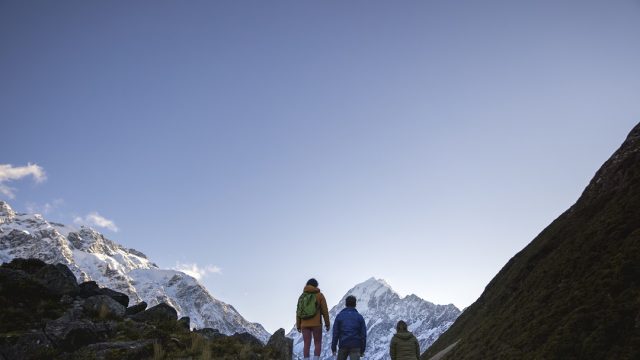
Places In New Zealand That Don’t Feel Real
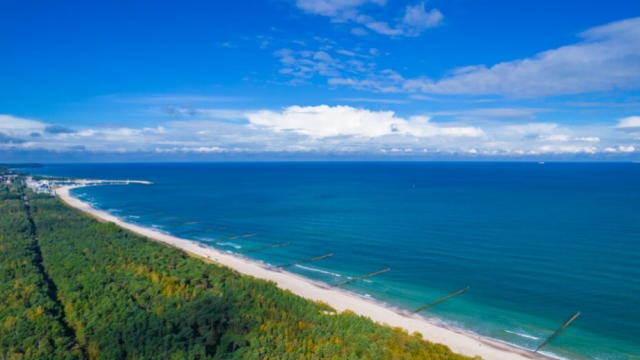
Poland’s Sustainable Tourism: A Green Path to Discovery
A travel vacation should not only be an unforgettable experience, but offer solid peace of mind. That’s why USTOA created a consumer protection fund which protects consumers who book with our Active Members.
USTOA Account Login Please note that passwords are case-sensitive
If you're having issues logging in with a valid password, you may need to clear your browser cookies. Information for clearing them here:
- Chrome: https://support.google.com/accounts/answer/32050
- Firefox: https://support.mozilla.org/en-US/kb/delete-cookies-remove-info-websites-stored
- IE/Edge: https://privacy.microsoft.com/en-us/windows-10-microsoft-edge-and-privacy or https://support.microsoft.com/en-us/help/278835/how-to-delete-cookie-files-in-internet-explorer
- Safari: https://support.apple.com/guide/safari/manage-cookies-and-website-data-sfri11471/mac
You may also click on the following link to clear USTOA cookies if above fixes are still not effective: https://ustoa.com/clear-cookies
Reset Your Password Enter your email and request a new password to be sent.
Become a ustoa member.

If you're interested in becoming a member, we welcome your application.
Find Your Dream Vacation
Find a travel advisor, ustoa on tour live, $1m travelers assistance, active member directory, travel blog, ustoa annual conference & marketplace, future lights, sustainability (sir) resources hub, events calendar, become a member, travel advisors, travel advisor resources, 2024 ustoa digital guide, press releases, ustoa press kit, ustoa travel blog, ustoa in the news, press registration, history of ustoa, frequently asked questions.
- Privacy Policy
Our website is set to allow the use of cookies — for more information click here . If you consent to cookies please click "Proceed" or simply continue browsing PROCEED
Tour Operators
Tour operator is an organization, firm, or company who buys individual travel components, separately from their suppliers and combines them into a package tour, which is sold with their own price tag to the public directly or through middlemen, is called a Tour Operator .
More precise tour operators are primarily responsible for delivering and performing the services specified in a given package tour. They can provide these services themselves as some have their own cars and coaches, hotels, and other travel-related services or can obtain these from the other suppliers. That is why they are called manufacturers of tourism products .
Tour operators are sometimes called wholesalers but this is partially true because a wholesaler buys goods and services in bulk at his own account to prepare a tour package and then retails it through the travel agencies or directly to clients. However, a tour operator who has his own one or more tourists products components, (SOTC, TCI, Thomas Cook, Indo Asia KUONI formulates a new tourist product for example ‘ inclusive tours .’
Tour operators generally offer a variety of package tours to cater to the needs of different kinds of travelers.
Definitions of Tour Operator
Poyther (1993) defines, “tour operator is one who has the responsibility of putting the tour ingredients together, marketing it, making reservations and handling actual operation.”
Holloway (1992) stated that tour operations undertake a distinct function in the tourism industry, they purchase separate elements of tourism products/services and combine them into a package tour which they sell directly or indirectly to the tourists.
Today, tour operators have become highly competitive. They endeavor to achieve a high volume of turnover, and maximum International and domestic market share by effectively operating. Moreover, the success of many developed and developing nations as tourists destinations depend heavily on a tour operator’s ability to attract tourists, development and promotion of tourism plant, diversification of tourism product and their social responsibilities to develop a remote and backward area.
Types of Tour Operators
Tour operators are basically categorized into four types . These are categories on the basis of their nature of the business and its operations.
Inbound Tour Operators
Outbound tour operators, domestic tour operators.
- Ground Operators
These are also known as incoming tour operators . Technically, the operators who receive guests, clients/tourists, and handle arrangements in the host country are c alled inbound tour operators . For example, a group of American Tourists is coming through TCI Ltd. to India and the company makes arrangements and handles the group in India then TCI is called an inbound tour operator.
Incidentally, the inbound traffic to the country for the last two decades has been decreasing. Essentially the tour operators need to adopt innovative marketing strategies and should introduce a special interest tour to cater the special needs of Japanese, Americans, French and British people.
Tour operator who promote tours for foreign destinations, maybe business tour or leisure tour is called outbound tour operators . For example a group of American tourists going to a trip of India and Thomas Cook handle arrangement in America like as ticket reservation, hotel booking etc. then Thomas Cook is called Outbound Tour operators in the context of America.
Domestic tour operators are those who assemble, combine tourist components into inclusive tours and sell it to the domestic travelers. In general, these tour operators provide travel services within the tourist’s native country.
The domestic tour operators operate within the boundary of the home country and offer package tour to the travelers viz. Domestic inclusive tours or independent tours.
Ground Operators/Destination Management Companies
These are commonly known as handling agencies and their main function is to organize tour arrangements for incoming tourists on the behalf of overseas operators. Let us take the case of India as a destination that – has a varied culture.
When a tour operator himself promotes beach holidays, wildlife holidays, adventure tours, heritage tours at the different places, the difficulty arises. It is the ground operator then who by handling the incoming travelers in the same season but at different places ensures that the entire operation is according to the package tours or agreements.
Sometime when a handling agency is at a prominent tourist place i.e., Delhi and it has to make arrangements to Goa, then it contracts (If it has no office of its own) with a local operator (known as excursion agent) to handle the arrangement on his behalf.
Why Ground Operators?
Obviously, the tour operation companies do not have close contact with suppliers, governments, destinations and so on. It leaves no choice with the companies but to appoint handling agencies at the destinations. The main reasons are:
- Introduction of new products or plant to promote an exotic destination.
- Lack of Government regulations.
- Lack of personal contract.
- Language problem.
- The company cannot establish its own branch.
Recognizing the very fact that the reputation, performance, and profitability of tour company in its own market largely depends on the efficiency and effectiveness of ground operators, it has because necessary for the company to consider various factors before the selection of a handling agency, they are:
- Size of business
- Professional staff
- Length of business
- Area of operation/Product line
- Market share
Functions of Ground Tour Operators
Over the years of functions and activities of the destination, companies have changed drastically to cope with the changing environment of the tourism industry. In fact, today’s destination companies have become more professional and are bound to provide personalized travel services to the tourists. The following functions are performed by ground tours operators:
- Land arrangement
- Contract and Negotiate with other vendors
- Handling of Arrival and departure procedure
- Planning and organizing local package tour
- Escorting the tourists
- Providing market information
- Costing and pricing package tour
Practically, if we see the working of the travel agencies and tour operators in the industry we find that most of the organizations are performing different types of activities like the retail travel agency , wholesale travel agency, and tour operators.
The travel agency business is no longer an amateurism. Over the last two decades, the pattern and structure of travel agencies have changed to meet tough challenges in the international market. Today, small-scale agencies are finding the travel industry increasingly complex.
Thus, the small and medium scale travel agencies are disappearing or merging or falling instead of rising. On the other hand, a new concept has also emerged i.e. tour operation business . The tour operation business is new but a maturing business at the global level.
Functions of Tour Operator
A tour operator is an organization, firm, or person who is responsible for the actual arrangement of transport and accommodation facilities on any tour or vacations. They are also responsible for operating and providing vacation through contracting, booking, and packaging together of the various components of the tour such as hotel, transportation, meals, guides, optional tours, and sometimes flights.
A tour operator is like a service provider, providing the most convenient option for tourists to stay, visit, as well as leave from the city. A tour operator owns a high volume of travel services across carriers, services, and accommodation. Some most important functions of the tour operators are following as:
Planning a Tour
The most important functions of the tour operators are planning a tour. Tour operators plan a tour and make tour itinerary which contains the identification of the origin, destination and all the stopping point in a traveler’s tours. A prospective tour operator also gives advice to intending tourists in various types of tour programmes, which they may choose for their leisure or commercial travel.
Making Tour Package
Tour operator buys individual travel components, separately from there suppliers and combines them into a package tour. Tour operators make tour package by assembling various travel components into a final product that is called tour package which is sold to tourist with own price tag. Making tour packages is also an important function of Tour Operator.
Arranging a Tour
Tour operators make tour package and also arrange a tour according to tourist demands. Tour operators arrange the tour package and various tourists activities to provide the best experience to tourists/traveler.
Travel Information
Whatever the size of tour operators, it has provided necessary travel information to the tourists. This task is utterly difficult and very complicated. A tour operator must give up-to-date, accurate and timely information regarding destinations, modes of travel, accommodation, sightseeing, immigration, health and security rules about various permits required to travel in a particular area etc.
Reservation
It is a very important function of all type tour operators and travel agencies. Tour operator makes all the reservation by making linkages with accommodation sector, transport sector and other entertainment organizations to reserve rooms, and seats in cultural programmes and transportation.
Travel Management
Tour operators manage tour from beginning to the end of the tour. A tour operator has the responsibility to look after the finer details of a vacation or tour such as hotel, accommodation, meals, conveyance etc. Tour operators provide travel guide, escorting services and arrange all travel related needs and wants.
Evaluate the Option Available
Tour operators evaluate all available options to provide a unique or unforgettable travel experience to tourists during their journey. Tour operators evaluate the various options available for a tour package and provide best of them to tourists.
Tour Operators makes tour packages and promote them into various tourists markets at domestic as well international level. Tour operators promote a travel destination to attract a large group of tourists at domestic as well as international level. In the promotion of tourist destination, tour operators play a key role. Travel agencies or tour operators are called as image builder of a country.
Sales and Marketing
Tour operators do sales and marketing of tourist products. Tour operators buy individual travel components, separately and combine them into a tour package, which is sold with their own price tag to the public directly. Tour operators do marketing of tourist destinations and tourism product to attracts the attention of the tourists/travelers.
Taking Care of Glitch
Tours operators are also called handling agencies which handles tour package and take care of all the glitches and problems arises during a tour package. Tour operators fix the glitches and provide the best available alternative to tourists during their journey.
Importance of Tour Operators
Tours operators play a key role in the tourism sector. Tour operators create tourist products, promote them a finally sold them to tourists.
Tour operators provide the best and competitive price to the tourist. Tour operators negotiate with suppliers of tourism products such as hotels, airlines and provide the best possible price to the tourist. Tour operators buy tourist products in bulk and get huge discounts from suppliers. So that they provide tourist products at a cheap price.
Tour operators organized a tour in the best way. They personalize and make sure each and every component of the tour is well-taken care. Tour operators provide the best travel experience during a tour. Tour operators save tourists time and money.
Tour operators provide immediate support systems at the host country as well as a foreign land. When tourists travel to a foreign land and things get uncertain, maybe its a health or loss of documents and need to return back or change of travel plan. A qualified tour operator takes care of all these unseen events with efficiency.
Tour operator caters to the needs of tourists on the based on their taste of travel. Tour operator provides all the best available option according to tourist needs and demands
Difference between Travel Agent and Tour Operator
There is a lot of confusion about the difference between tour operators and travel agents what exactly makes them different. The main difference between a Travel agent and Tour operator are following as:
- A travel agent is a person who has full knowledge of tourist product – destinations, modes of travel, climate, accommodation, and other areas of the service sector. He acts on the behalf of the product providers/principals and in return get a commission.
- Tour operator is an organization, firm, or company that buys individual travel components, separately from their suppliers and combines them into a package tour, which is sold with their own price tag to the public directly or through middlemen.
- Tour operators are like wholesalers and travel agents are the retailers.
- A tour operator makes the package holidays up and the travel agents sell them on.
- Tour operator taking up the bulk of the responsibilities and his fee is obviously much greater than a travel agent.
- A tour operator has the responsibility to look after the finer details of a vacation or tour such as hotel, accommodation, meals, conveyance, etc.
The wholesale travel agencies may offer or operate the package tours or may specialize in developing tours for inbound as well as outbound travelers. They are often referred to as tour operators, but there is a difference between Wholesale Travel Agencies and Tour operators .

What is Travel Trade? History, Travel Agency, Tour Operators
- Post last modified: 19 January 2023
- Reading time: 24 mins read
- Post category: Tourism
What is Travel Trade?
Travel Trade is a tourism term referring to tour operators, travel agents, receptive operators, and wholesalers. These professionals organize and contract to buy travel products to sell to groups or individuals.
Table of Content
- 1 What is Travel Trade?
- 2.1 Origin of Traveller’s Cheque
- 2.2 Philanthropic Work
- 2.3 Diversification of Business
- 2.4 Acquisitions for Expansions
- 2.5 History of Travel Agency Business in India
- 2.6 Period of Pre Independence
- 2.7 Period of Post Independence
- 3.1 First German Travel Agencies
- 3.2 First Indian Owned Travel Company
- 4.1 Retail Travel Agency
- 4.2 Wholesale Travel Agency
- 5 Tour Operators
- 6.1 Inbound Tour Operators
- 6.2 Outbound Tour Operators
- 6.3 Domestic Tour Operators
- 6.4 Destination Management Companies/ Ground Operators
- 7 Difference between Travel Agencies and Tour Operators
The travel agency trade in India is about 60 years and has gained momentum from the growth of civil aviation in the country. Travel agency trade in India was a small start with a few firms, today it has about 750 approx. travel agencies spread all over the country.
The country is renowned for its uncertainties and it’s not easy to count out without any guidance. There in India travel agencies or tour operator emerges as a perfect travel companion chasing away the complexities and overcoming all hurdles and ensure you have a perfect traveling experience.
History of Travel Trade in India
People were not aware of the services of travel agencies and they used to face several types of difficulties to arrange tours on their own. Travel agents were appointed for the purpose of arranging logistics for the army personnel or reliefs for war victims.
They used to work providing postal and courier services to the government. The American Express Company celebrated its 150 anniversary in 2000 as a branded Credit Card and Traveler’s Cheque Company.
It has created its own niche in the credit card segment. Today, the company is the world’s largest wholesale travel agent and consolidator with provisions of travel solutions for flights, hotels, car rentals, holiday packages, cruises, and money exchanges to individuals, groups, and corporate travelers.
History of Travel Trade in India:
Origin of Traveller’s Cheque
Philanthropic work, diversification of business, acquisitions for expansions, history of travel agency business in india, period of pre independence, period of post independence.
American Express is a global company serving the public as well as government agencies with its unique supply chain management system to deliver travel products freely at distance places for the last one and a half-decade.
Travelers are well-known and comfortable with traveler’s cheques issued by American Express from several locations around the world. It was a travel solution for long-haul travelers carrying money for spending on transport, accommodation, food, tips, and shopping.
There were two benefits for American Express Company:
- It charged service charges for issuing cheques.
- Money, which was deposited for issue of cheque, was invested for earning interest.
Traveler’s cheque business became very profitable for the company and it expanded its network across the USA and other European countries including the UK.
American Express Company became a popular and reliable agency for the general public and government for its Money Order as well as Traveler’s Cheque.
The historic assistance of the American Express Company with its cheque became famous for the company to receive more acceptability.
The stranded passengers in European cities during the First World War were given cash against their traveler’s cheques and money orders instantaneously. It was a timely help for passengers that helped passengers spend on routine things.
Cargo and baggage handling and money exchange were the core business until 1915. A 30,000-mile world cruise tour connecting and stopping at different countries such as Cuba, Panama, Japan, China, Singapore, India, and Egypt along with the Mediterranean countries was conducted for passengers in 1922. The duration of the cruise tour was four-month-long.
The company also entered into the direct sale of bus, train, and cruise tickets. The diversification of business did not bring about visible changes in the business due to the political turmoil followed by two World Wars in a gap of two decades.
After the end of World War II, there were political unions across the world and many countries deeply realized the impact of wars on trade and commerce. Neighboring countries were engaged in dialogue for promoting trade and commerce.
That resulted in the movement of people from one country to another. American Express took the advantage of the mass movement of people in the early1950s and the business got revived. The first Credit Card was introduced in 1958.
As a result, credit cards were issued with easy formalities for the general public in America to use extensively. People took it as a status symbol and hassle-free way of purchasing and paying.
American Express went on acquiring companies that were directly and indirectly into the travel business. The names of the companies include Shearson Loeb Rhodes, First Data Resources, Trade Development Bank, Lehman Brothers, Kuhn Loeb, and Investors Diversified Services.
All the diversifications and acquisitions took place between the 1970s and 1980s. This had a significant impact on revenue generation. The profit reached the extent of $1 billion in 1986.
There was a setback to the company’s turnover when restaurant operators did not use the cards due to high rates for accepting the payments through the Amex cards.
The Company maintained strategic links with airlines, banks, retailers, and other tourism business establishments to expand the circulation of Amex Card.
Travel agents were not merely meant for selling travel-related services but also used to take part individually or with groups for the promotion of tourism destinations.
International travel organizations like Thomas Cook, American Express, and Cox and King have made remarkable contributions to the growth of travel agencies and tour operation business. Those travel agencies brought several new ideas to the limelight.
Similarly, travel agencies in various countries followed and practiced innovative business strategies.
The evolution of modern travel agency and tour operation business in India does not have a long history unlike the history of travel agency business in Western Europe and North America. Overseas travel agents like Cox & Kings and Thomas Cook used to operate the inbound tour in India.
There was no formal travel agency in small cities to handle the foreign visitors. Thomas Cook & Cox and Kings used to conduct the world tour and special interest tours for royal family members. Package tours were regularly conducted to India for British officials and their family members and relatives.
Some of the events during Post Independence Period opened opportunities for the travel agents to expand more functions. One such event is the report prepared by Sir John Sargent in 1945 about the development of means of travel from the nearest railway station, residential accommodation, travel brochures and guide books, provision of authorized guides, etc.
The formation of the Tourist Traffic Branch coordinated with the travel agencies and tour operators in India and overseas to promote domestic and inbound tourism in 1949. The branch also established coordination for the conduct of conferences on tourism and coordination with railways.
The establishment of the Tourist Bureau in States and development of tourist centers and the training of guides were some of the initiatives of the Central Government for the promotion of tourism.
Travel Agency
A travel agency is one of the most important organizations in the tourism private sector that plays an important and vital role in the entire process of developing and promoting tourism in the country or at the destination.
It is a travel agency that packages and processes all the attractions, accesses, amenities, and ancillary services of a country and presents them to tourists. That’s why travel agencies are known as image builders of a country.
A prospective travel agency is one that makes arrangements of travel tickets (air, rail, road, and sea) travel documents (passport, visa, and other documents for travel), accommodation, entertainment, and other travel-related services from the principal suppliers. It may also secure travel insurance, foreign currency for the traveling people.
Travel managers should have professional qualifications and experience. In a small agency, training will probably be on-the-job. Large companies may offer a training program.
The main features of travel agency business are:
- An important link between the clients and principal suppliers.
- Image builder.
- Ensures rapid travel service.
- Provider of authentic and reliable travel information.
- A social and continuous process.
- Establishes good relationship with clients and vendors.
First German Travel Agencies
The first German Travel agencies in the line of modern travel agencies were known as Immigration Agencies. These agencies were engaged in booking ship passages and sometimes group journeys from a collection point to the point of embarkation.
The oldest of such agencies was Reiseburo Rominger in Stuttgart in 1842. This agency subsequently extended its activities to the whole range of travel services in Europe. To make traveling simple for the individual, the concept of tickets for means of transport was introduced and issued by these larger agencies in Europe.
First Indian Owned Travel Company
Pallonji Katgara & Jamshedji Dastoor created the Jeena and Company (a shipping and export company) with a seed capital of US$ 75 in 1900. Jeena Tours and Travels was established in 1920 with the privilege of being the first Indian – owned travel company.
In 1961 the Company was merged into Travel Corporation (India) Pvt Ltd to become India’s largest travel company under the leadership of the Katgaras.
Types of Travel Agencies
These are major types of travel agencies:
Retail Travel Agency
Wholesale travel agency.
A retail travel agency sells tourist products directly to the public on behalf of the product suppliers and in return gets the commission. Some package tours are sold in two ways i.e. on a commission basis and mark-up price.
When a travel agency sells a tour package at a marked-up price, it means that first, it marks up the cost of a tour and then sells it at a higher rate. The mark-up price is the difference between retail price and wholesale cost.
A retail travel agency is defined as a business that performs the following functions: quote fares and rates, make reservations, arrange travel tickets and accommodation, arrange travel insurance, foreign currency, documents and accept payments.’ The main source of revenue for a retail travel agency is the commission received from the vendors.
However, the rate of commission differs from organization to organization and travel component to travel component. In India, retail travel agencies receive ninety-five percent of their revenue from the commission and the remaining five percent from consultancy services.
These agencies are specialized in organizing package tours, which are marketed to the customers/tourists through the network of a retail travel agency or directly to the prospective clients (if the wholesale travel agency has a retail division).
A wholesale travel agency purchases tourist product components in bulk and designs package tours. Sometimes, a wholesale travel agency buys travel components from a vendor in bulk and resells them to another travel business organization.
Wholesale travel agencies assemble package holidays and sell them to the clients by retail travel agencies. A typical package tour includes air tickets, accommodation, and sometimes other services may also be included in it such as entertainment, sightseeing, and sports activities, etc.
These packages are referred to as ‘package tours’ as most of these tours include the services of escorts but a few are sold to people who wish to travel independently.
How a wholesale travel agency generates profit? Generally, a wholesaler receives volume discounts from principal suppliers because a wholesaler might agree to purchase a large number of seats from a particular airline or reserve a large number of rooms at a particular hotel and resort.
Practically, a wholesaler who sells package tours is called a tour operator. However, technically there is a difference between a wholesaler and a tour operator. A wholesaler who sells tourists’ products individually without assembling them into package tours is called a consolidator.
Mostly, these are specialized in a particular product component, such as air tickets, accommodation, conferences, and conventions, etc.
Tour Operators
An organization, firm, or company which buys individual travel components, separately from their suppliers and combines them into a package tour, which is sold with their own price tag to the public directly or through middlemen is called a tour operator.
More precisely, tour operators are mainly responsible for delivering and performing the services specified in a given package tour. They can provide these services themselves as some have their own cars and coaches, hotels, and other travel-related services or can obtain these from other suppliers.
That is why they are called manufacturers of tourism products. Tour operators are sometimes called wholesalers but this is partially true because a wholesaler buys goods or services in bulk at his own account to prepare a tour package and then retails it through the travel agencies or directly to the clients.
However, a tour operator who has his own one or more tourist product components formulates a new tourist product for example ‘inclusive tours’. Tour Operators generally offer a variety of package tours to cater to the needs of different kinds of travelers.
Types of Tour Operators
Let’s discussed the types of tour operators which are given below:

Inbound Tour Operators
Outbound tour operators, domestic tour operators, destination management companies/ ground operators.
These are also known as incoming tour operators. Technically, the operators who receive guests, clients tourists and handle arrangements in the host country are called inbound tour operators.
For example, a group of American tourists coming through TCI to India and the company makes arrangements and handles the group in India, then TCI is called an inbound tour operator. Incidentally, the inbound traffic to the country for the last two decades has been decreasing.
Essentially, tour operators need to adopt innovative marketing strategies and should introduce special interest tours to cater to the special needs of foreign tourists.
Tour operators, who promote tours to foreign destinations, maybe business tours or leisure tours are called outbound tour operators.
Indian outbound tourist traffic is growing at a rate of 10 percent annually and this makes India the second-largest country in the world with regard to the traveling population.
However, India’s outbound tourism is not only holiday-oriented but it is business-oriented too. There are many travel companies that offer outbound packages such as SITA, TCI, Thomas Cook, etc.
Domestic tour operators are those who assemble and combine tourist components into inclusive tours and sell them to domestic travelers.
In general, these tour operators provide travel services within the boundary of the home country and offer package tours to the travelers viz. domestic inclusive tours or independent tours.
These are commonly known as handling agencies and their main function is to organize tour arrangements for incoming tourists on behalf of overseas operators. When a tour operator himself promotes beach holidays, wildlife holidays, wildlife tours, heritage tours, cultural tours at different places, the difficulty arises.
It is the ground operator then who handles the incoming travelers in the same season but at different places ensures that the entire operation is according to the package tours or agreements.
Sometimes when a handling agency is at a prominent tourist place, for example, Delhi, and it has to make arrangements to Goa, then it contracts (if it has no office of its own) with a local operator (known as an excursion agent) to handle the arrangements on his behalf.
Difference between Travel Agencies and Tour Operators
- The major difference between tour operator s and travel agencies is in the system of providing service to customers. A tour operator is a company that buys certain services from different companies (like hotels, restaurants, cafes, beauty salons) and forms a single tourist product out of them using its own pricing system. A travel agency acts like an independent reseller. Its profit is the commission for the sale of the operator’s tours to customers. That’s why the agent’s price is usually higher, although there are moments when agents deliberately understate their prices.
- Usually a tour operator is a comparatively large company in comparison with a travel agency. It has its main office and several subsidiaries in order to offer their services to more potential customers. Many big tour operators have subsidiaries in different countries. Irrespective of the number of subsidiaries a tour operator usually concludes agent agreements with independent travel agencies that then sell the operator’s tours to their customers. The more partners a tour operator has in as many countries and regions as possible, the more the sales volume is and, correspondingly, the more tourists will buy its tours and the more profit it will gain.
- A tour operator may be a supplier (meaning they might own hotels or car rentals or Both) and allow to use their own inventory or their supplying partner inventories for a fee. A travel agent is only a distributor, and typically travel agents rarely own any travel assets (such as car rentals or hotels) of their own.
- Travel agencies are less inclined than tour operators to perform ground services i.e. to act like a handling agency or ground operator.
- A t ravel agency may deal with one component of travel product while a tour operator offers a variety of tour programmes.
Please Share This Share this content
- Opens in a new window X
- Opens in a new window Facebook
- Opens in a new window Pinterest
- Opens in a new window LinkedIn
- Opens in a new window Reddit
- Opens in a new window WhatsApp
You Might Also Like
Tourist places to visit in punjab (2024), health and medical tourism: destinations, measure to development, motivation for travel | theory: plog, maslow, hudman, krippendorf, nickerson, general theory, tourist places to visit in andhra pradesh (2024), rural tourism: types, benefits, challenges, growth, what are tourists types, tourist satisfaction, leave a reply cancel reply.
Save my name, email, and website in this browser for the next time I comment.

- TUI History
- About TUI Group
- Vision & Values
- Our business
In recent years, the TUI Group has developed into one of the world's leading tour operators. The journey began in December 1968 when several German tour operators joined forces to form Touristik Union International. Here we have summarised the most important milestones:
1968: The “Touristik Union International” is being formed.
70s: Expansion of the hotel portfolio with the launch of the Robinson brand and participation in various vacation hotel operators such as Iberotel, Grecotel and RIU.
80s: Development of various European source markets. TUI establishes itself as the one-stop shop in Europe for vacations and travel.
1997: TUI becomes part of the industrial conglomerate Preussag AG.
2002: Preussag AG becomes TUI and in future stands on the pillars of tourism and container shipping. In addition, the well-known TUI Smile is introduced as the brand logo.
2007: TUI merges its tour operator business with the British First Choice - TUI Travel PLC is created.
2008: TUI Cruises sets sail under the "Mein Schiff" brand, initially with two modernized ships, in order to establish itself in the market.
2014: Reunification with the subsidiary TUI Travel PLC - TUI becomes a globally integrated tourism group investing in, developing and operating hotels and cruise ships.
2015: Establishment of the core hotel brand TUI Blue and expansion of the TUI Cruises and Hapag-Lloyd Cruises fleet.
2018: With the acquisition of the Italian Musement platform, the Group builds the Group's third growth pillar: the experience and activities business.
2022: The Group returns to normality after the Corona pandemic. No standstill, but growth and further development are the motto. The product range becomes broader, hotels and flights can be booked as individual components, travel packages are put together dynamically - TUI becomes a year-round travel and leisure companion – with more customers and more market share.
2023: The Group presents its ambitious sustainability agenda. With scientifically based targets validated by the Science Based Targets Initiative (SBTi), TUI aims to become the first climate-neutral travel group.
At this point you will be shown external content. Click 'Show external content' if you agree. For more information, please see our privacy policy.
MORE LANGUAGES
- TUI History in German
- TUI History in Turkish
- TUI History in Spanish
- TUI History in Greek
We use cookies to provide you with an optimized website experience. They include cookies for the operation and optimization of the website as well as cookies for analyses, retargeting and to provide personalised content on websites by third party providers. By clicking on Accept you are agreeing to the use of non-essential cookies. If you don't want that, you can Decline All the use of cookies or change your Settings at any time. For more information, including the processing of data by third party providers, see our Cookie Notice . You can find further information on the use of cookies at any time in our Cookie Notice and our Privacy policy . You will find the Imprint here.
Choose which cookies are permitted by using the “Status”-Switch. Save your settings with the button “I Agree”.
You can find further information on the use of cookies at any time in our Cookie Notice and our Privacy policy . You will find the Imprint here.
This website may ask your browser to store cookies. See our Cookies Policy for more information about our use of cookies.
- site navigation
- main content
- +44 (0)20 8742 3355 +44 (0)20 8742 3355
- [email protected]
- +44 (0)20 8742 3355
History tours
Our History tours focus on significant events, encounters and destinations, from castle-builders and conquest in medieval Wales to The Making of Argentina ; from forces that shaped the Western Balkans to the passion and politics of civil war Spain . Acclaimed historians provide context and analysis on in-depth journeys through place and time.
Central to all our history tours is the choice of lecturer; top academics and experts with first-hand experience of the places and detailed knowledge of the period in question. They include former diplomats, army officers and foreign correspondents – well placed through their myriad contacts to open doors onto the past.
Additionally, our UK based residential history symposia programme presents leading scholarship in digestible and entertaining ways. We run one of two of these events per year – contact us to register your interest for 2024.
Filter your search
- View all tours
- Destination Africa Americas Asia Australasia Europe Middle East & Central Asia
- Country Albania Algeria Argentina Armenia Australia Austria Bahrain Belgium Belize Bolivia Bosnia & Herzegovina Bulgaria Cambodia Chile China Croatia Cyprus Czech Republic Denmark Egypt Estonia Ethiopia Finland France Georgia Germany Greece Guatemala Honduras Hungary Iceland India Iran Ireland Israel Italy Japan Jordan Latvia Lithuania Malta Mexico Montenegro Morocco Myanmar Netherlands Norway Oman Palestine Peru Poland Portugal Qatar Romania Russia Serbia Slovakia Slovenia Spain Sweden Switzerland Taiwan Tunisia Turkey United Arab Emirates United Kingdom USA Uzbekistan Vietnam
- Theme Archaeology Art & Architecture Gastronomy History Houses & Gardens Literature & Drama Music, Opera & Ballet Walking
- Holiday type Lecture Afternoons London Days Music & History Weekends Music Festivals Private groups Tours for small groups
Start typing lecturers's name
- Departure date April 2024 May 2024 June 2024 July 2024 August 2024 September 2024 October 2024 November 2024 December 2024 January 2025 February 2025 March 2025 April 2025 May 2025 June 2025 July 2025 August 2025 September 2025
- Price Up to £1,000 £1,000 to £2,000 £2,000 to £3,000 £3,000 to £4,000 £4,000 to £5,000 £5,000 to £6,000 £6,000 to £7,000 £7,000 to £8,000
- Featured Late availability Most popular New tours
Habsburg Austria Castles & churches, houses & palaces, town & country
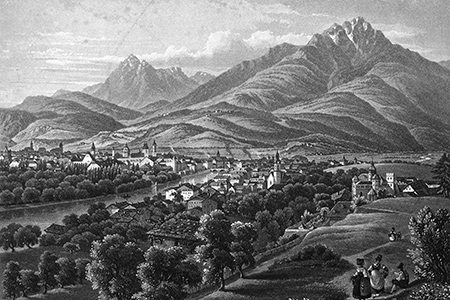
Two Spains: The Spanish Civil War & its Aftermath Madrid, Priorat, Barcelona

The Western Balkans Croatia, Serbia, Bosnia-Herzegovina & Montenegro: history past & present
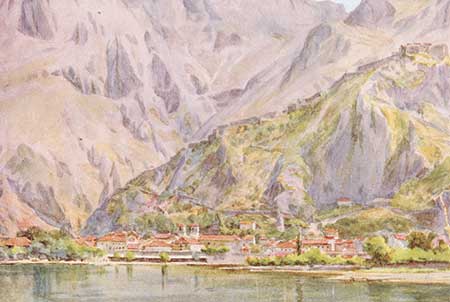
The Plantagenet Empire Rulers of England in Normandy and Anjou
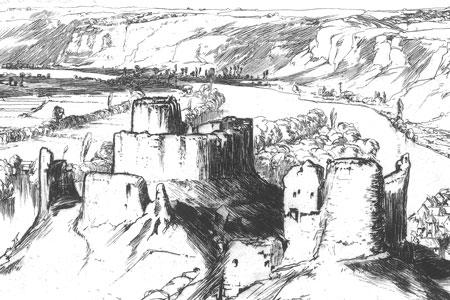
In Churchill's Footsteps Celebrating the 150th anniversary of his birth
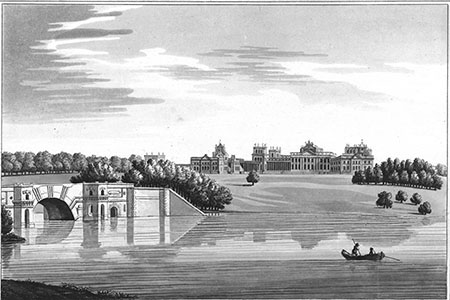
Whitehall Architecture & history
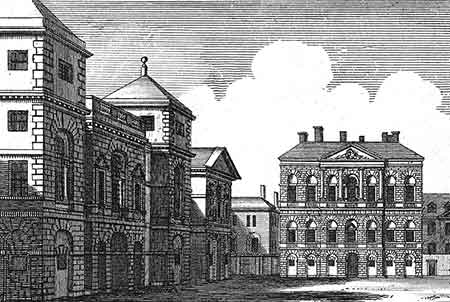
Maritime England Royal Navy and Merchant Navy in the history of the nation
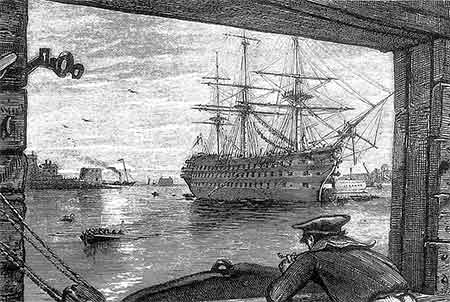
The Romans in Britain a midweek symposium in York
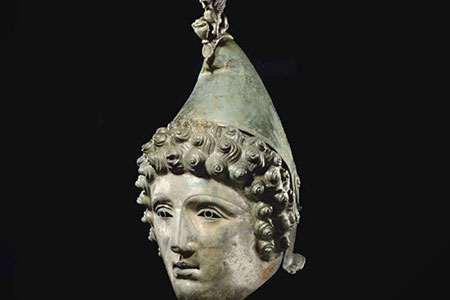
The Making of Argentina A creative history from the Atlantic to the Andes
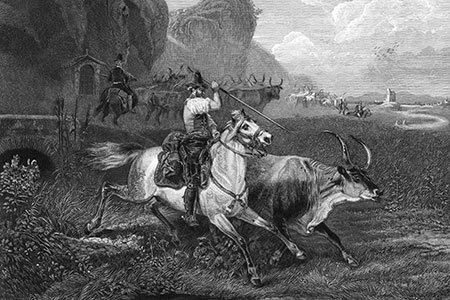
Romans & Carolingians Germany from Augustus to Charlemagne
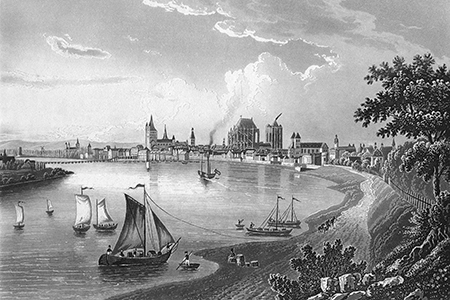
You are using an outdated browser. Please upgrade your browser or activate Google Chrome Frame to improve your experience.

Want to create or adapt books like this? Learn more about how Pressbooks supports open publishing practices.
Origins of Tourism in Canada Timeline
This is an accessible copy of the Origins of Tourism in Canada timeline H5P activity provided in Chapter 1.3 Canada Overview .
Origins of Tourism in Canada
Understanding the factors influecing the development of tourism in Canada through time.
- 1534: Explorers of the day, such as Jacques Cartier, were some of the first tourists to what is now called Canada.
- 1836: The first railway was launched.
- 1885: Banff was established as Canada’s first national park.
- 1892: Early tourism promotion. As early as 1892, enterprising Canadians like the Brewsters became the country’s first tour operators, leading guests through areas such as Banff National Park (Brewster Travel Canada, 2014). Communities across Canada developed their own marketing strategies as transportation development took hold. For instance, the town of Maisonneuve in Quebec launched a campaign from 1907 to 1915 calling itself “Le Pittsburg du Canada.” By 1935, Quebec was spending $250,000 promoting tourism. Other provinces such as Ontario, New Brunswick, and Nova Scotia followed suit, also enjoying the benefits of establishing provincial tourism bureaus (Dawson, 2004).
- 1911: The Dominion Parks Branch is created. The Dominion Forest Reserves and Parks Act created the Dominion Parks Branch, the first of its kind in the world (Shoalts, 2011).
- 1914-1960: The Railway Age. By the onset of World War I in 1914, four railways dominated the Canadian landscape:Canadian Pacific Railway (CPR), Canadian Northern Railway (CNOR), the Grand Trunk Railway (GTR), and the Grand Trunk Pacific (GTP). Unfortunately, their rapid expansion soon brought the last three into near bankruptcy (Library and Archives Canada, n.d.). In 1923, these three rail companies were amalgamated into the Canadian National Railway (CNR), and together with the CPR, these trans-continentals dominated the Canadian travel landscape until other forms of transportation became more popular.
- 1937: Air Canada was formed. Our national airline, Air Canada, was formed in as Trans-Canada Air Lines.
- 1950-1960: Increased mass travel. Through the 1950s and 1960s, reduced airfares saw increased mass travel. Competitors including Canadian Pacific (which became Canadian Airlines in 1987) began to launch international flights during this time to Australia, Japan, and South America ( Canadian Geographic, 2000).
- 1962: Trans-Canada Highway officially opens. It would take decades before a coast-to-coast highway was created, with the Trans-Canada Highway officially opening in Revelstoke in 1962. When it was fully completed in 1970, it was the longest national highway in the world, spanning one-fifth of the globe (MacEachern, 2012).
- 1970: The National Park System Plan divided Canada into 39 regions.
- 1978: The popularity of car travel was partially to blame for the decline in rail travel. In 1978, with declining interest in rail travel, the CPR and CNR were forced to combine their passenger services to form VIA Rail (Library and Archives Canada, n.d.).The rising popularity of car travel was partially to blame for the decline in rail travel, although it took time to develop.
- 1987: Canada’s first marine conservation areas created.
- 2000-2002: Air Canada was facing financial peril and forced to restructure. A numbered company, owned in part by Air Canada, purchased 82% of Canadian Airline’s shares, with the result of Air Canada becoming the country’s only national airline ( Canadian Geographic, 2000). The 2000s saw Air Canada experiencing a roller-coaster performance from verging near bankruptcy in 2002
- 2013-2017: Air Canada transforms. Air Canada experienced a number of transformations from interior and interior aircraft redesigns and further fleet upgrades
- 2019: Air Canada takes over Air Tansat. Once a rival airline, Air Transat was subsequently taken over by Air Canada.
- 2020 (March): COVID causes an almost complete shut down. Tourism was placed in a standstill as global travel restrictions were imposed to prevent the spread of infection. Aggravated with a nose dive of consumer confidence in travel, many tourism businesses and operators big and small were forced to close.
Introduction to Tourism and Hospitality in BC - 2nd Edition Copyright © 2015, 2020, 2021 by Morgan Westcott and Wendy Anderson, Eds is licensed under a Creative Commons Attribution 4.0 International License , except where otherwise noted.
Share This Book
Company-Histories.com
learn how over 7,000 companies got started!
- Listed By State
Companies by Letter
Airtours plc.
Airtours Plc is one of the largest integrated tour operators and travel agents in the European and North American markets. Based in England, where the group is the second largest holiday package vendor after Thomson Travel Group, Airtours has been expanding rapidly in the late 1990s, achieving leading tour and travel positions in the Scandinavian, German, Dutch, French, and Belgian markets, while also building a strong position in the United States and Canada.
Airtours' operations are divided into three areas. The first is the company's holiday tour package sales, represented by the Airtours and other brand names, including Spies in Scandinavia; Sunquest Vacations in Canada; Suntrips in California; Sun International SA in Belgium; Direct Holidays, a direct sales package seller in the United Kingdom; and others, such as the company's 1998 additions of Frosch Touristik in Germany, Panorama Holidays in Ireland, and Vacation Express, based in Atlanta, Georgia. Added to the company's tour operations is Airtours' own network of nearly 800 travel agencies under the Going Places brand name in the United Kingdom. Since the mid-1990s Airtours has been building operations in a new area: cruise lines. In 1998 the company counted three cruise ships in its possession, carrying more than 90,000 vacationers to more than 40 ports. A fourth cruise ship was expected to be added in 1999. Supporting Airtours' activities is a solid infrastructure that includes not only company-owned resort and other hotels, but also the company's own charter airline. The company operates a fleet of some 20 airplanes, ranging from Airbus A320s to Boeing 767s.
Airtours continues to be led by founder David Crossland. A public company listed on the London stock exchange, Airtours is partly owned by the United States' Carnival Cruise Lines, the world's leading cruise line operator, which bought up nearly 30 percent of Airtours in 1996. After rising to the top of the British tour market in the 1990s, Airtours has been actively participating in the ongoing consolidation of the international tour and travel industry, as well as expanding into new markets. Already boasting a string of acquisitions, in December 1998 the company floated a convertible bonds issue, boosting its war chest by more than £250 million.
From Travel to Tours in the 1970s
David Crossland entered the travel business by a side road in the early 1960s. After leaving a self-described "mediocre" school career at the age of 16, Crossland sought work in hospital management. Crossland's lack of qualifications, however, prevented him from finding work in this field. Instead, Crossland found a job stamping brochures for a local travel agent. That job turned out to be an eye-opener for Crossland. As he told the Financial Times: "It was super leaving school and this was a marvelous opportunity, lots of colorful brochures and different places. It was like someone had opened the door and there was this big, shining light."
The shining light proved to be Crossland himself. After only three months, he added salesman's duties, selling holidays for the agent. Crossland turned out to be a natural salesman, with a knack for recognizing his customers' needs--a quality that would come into play strongly in his later career. Crossland's career received its next boost in 1971, when he met a couple preparing their retirement who were looking to sell their two Lancashire travel agencies. The couple offered to sell to Crossland, who jumped at the opportunity. "To this day, I don't know why I didn't say I had no money," Crossland told the Financial Times.
Buying the travel business would cost Crossland some £11,000. The agencies' owners themselves loaned Crossland £4,000, and Crossland sold a one-third share to his sister for £3,000. The remaining £4,000 came from Barclays Bank. Crossland quickly began earning back that loan--by the time he had signed the papers, he had sold a holiday package to the bank's manager. In 1972 Crossland took over Pendle Travel Services Ltd. It would take Crossland only nine months to pay off his company's debts.
Crossland proved to be not merely a good salesman, but a good manager as well. Over the next decade, Crossland sought out more travel agents who were looking to sell their agencies to retire. By the end of the 1970s he had built a chain of 12 travel agencies. Yet Crossland's ambitions would lead him into a vast expansion over the decade to come.
"Serious Business" in the 1980s
Despite Crossland's success, Pendle remained a relatively small company. A new inspiration in 1980, however, would lead the company into a new era. In that year Crossland recognized an opening in the tour packages industry. "I could see that passengers were coming in and asking for products that the tour operators weren't manufacturing," Crossland told the Daily Telegraph. "They weren't listening to the customers so in the 1980s we started a tour operation."
The opening Crossland spotted was in holiday packages for his working class customers. Whereas most tour packages at the time were being offered on a Wednesday-to-Wednesday basis and, therefore, were not easily adapted to customers' vacation schedules, Crossland began designing Saturday-to-Saturday tours. The shift to the weekend made all the difference. In 1980 Pendle would take some 900 customers on holidays to Malta. By the following year, that number would grow to more than 23,000, and the company began offering a choice of destinations. By 1983 Crossland's tour operation--created as a separate division dubbed Pendle Air Tours--had expanded the company to 23 agencies and more than 200,000 tour customers per year.
Until then, Crossland had led Pendle Travel Services as an entrepreneurial concern. But in the mid-1980s Crossland recognized his own limits and the limits of entrepreneurship. As he told the Financial Times: "I can remember thinking, 'I haven't got the capability to work any more hours, so if I want to expand the company, I'll have to find people with business disciplines I don't have.' In my own mind that was one of the turning points for the group, changing from a one-man entrepreneur into a serious business."
Crossland began recruiting a management staff, bringing in former executives from such firms as Marks & Spencers, Kellogg's, and Granada. The new team began reshaping Pendle from its former travel agent business to a full-fledged tour operator. By 1986 the company's tour business had become the primary source of revenues and growth. In that year Pendle sold off its 25 Pendle travel agency chain stores, and renamed itself Airtours, concentrating solely on its booming tour package operations.
Airtours continued to expand rapidly in the late 1980s. Fueling this expansion was the company's listing on the London stock exchange in 1987. The public company, and Crossland in particular, would be credited with bringing a new level of professionalism to the traditionally volatile travel business. Airtours also would prove adept at discovering new travel niches. In 1990, for example, Airtours launched its EuroSites brand of self-drive camping holidays. In keeping with the popular European-style camping holiday--where a "camping" often resembles a small resort more than a simple campground, complete with restaurants and recreational facilities--a EuroSites holiday offered a tent or mobile home rentals, as well as a choice of location in England, Holland, Germany, Denmark, and other European continent countries. The EuroSites concept proved to be a hit, bringing Airtours to one of the leading positions in that segment.
Vertically Integrated Travel Giant in the 1990s
The 1990s would see Airtours transform itself from tour package operator to a vertically integrated holiday provider. The company took an important step toward this transition in March 1991, when the company launched a new division, Airtours International, offering charter flights on the first of a soon-to-expand company-owned fleet of airplanes. The addition of Airtours International would help propel Airtours to the U.K. lead in the air-inclusive tour operators segment.
The following year Airtours reentered the travel agency business with the acquisition of Pickford Travel Agencies and that company's 330 travel agencies in the United Kingdom. The return to retail travel sales enabled the company to move closer toward vertical integration--a move that would be completed as the company began to acquire its own resort and hotel locations.
The troubled travel industry of the early 1990s--hit by the triple blow of overcapacity, traveler fears arising from the Persian Gulf War, and the recessionary economic climate&mdash′ovided fresh opportunities for growth for Airtours, as the company began seeking out more acquisitions. In 1993 Airtours bought Aspro, Ireland's largest tour operator and the number seven ranking tour operator in the United Kingdom as a whole. The Aspro acquisition also extended Airtours' airline activities, as it included Aspro's Inter European Airways subsidiary.
At the time that the Aspro acquisition was made, Airtours also purchased the Hogg Robinson Travel Agency and its chain of 214 retail stores. At the end of 1993 Airtours combined the Hogg Robinson and Pickford travel agent chains into a single operation, renamed Going Places. Further acquisitions would build the Going Places chain to more than 700 stores before the end of the decade.
These acquisitions would prove to be only the first of many more to come, as Airtours began seeking expansion beyond its U.K. base, as well as a diversification of its product offerings. After buying up Tradewinds, the leading long-haul tour operator in the United Kingdom, in December 1993, Airtours turned to a new market opportunity. With the purchase of the MS Seawing, Airtours entered the growing cruise ship market. By 1995 the company had added a second liner, the MS Carousel, and had launched its fly-cruise holiday packages.
The company's international expansion began in earnest in 1994 with the acquisition of Sweden's Scandinavian Leisure Group AB (SLG), which included not only that company's Ving, Saga, and Always tour brands, but also SLG's 50 percent ownership of Premier airlines, the largest charter airline operator in the Scandinavian countries. In addition to giving Airtours SLG's tour and airline operations, the acquisition placed SLG's Sunwing Hotel Group under Airtours' wing, giving the company a number of resort hotels in popular holiday destinations such as Majorca, Spain. Capping 1994, Airtours acquired a new retail operation in the form of Late Escapes, a teletext-based direct sales holiday provider.
After launching its cruise line operations in 1995, Airtours turned its attention to North America, purchasing Sunquest Vacations and Silverwing Holidays, two prominent Canadian-based holiday providers. These would be followed in 1996 with a move to consolidate Airtours' position as the leading tour operator in Scandinavia with the acquisition of the tour operators Spies and Tjaereborg, the hotel group Stella Polaris, and the acquisition of full control of Premier airlines.
Airtours' strong growth and its rapidly expanding cruise ship division, which was reaching more than 75,000 passengers per year, caught the eye of others in the travel industry, in particular the United States' Royal Caribbean Cruises, the largest cruise line operator in the world. In April 1996 Royal Caribbean became Airtours' leading shareholder with the purchase of 29.54 percent of the company's stock. The purchase sparked rumors of a possible takeover bid by Royal Caribbean; a possibility that neither side could discount completely for the future. Meanwhile, the shareholding position provided the basis for a partnership between the two companies, including the sale of one of Royal Caribbean's cruise ships to Airtours, which renamed the ship MS Sundream.
If the mid-1990s presented a difficult market, with increasingly consolidated, global competition sparking a price war that cut deeply into the company's profits, the second half of the decade would show impressive growth in Airtours. From revenues of £1.7 billion in 1995, the company would reach more than £3 billion by 1997.
Among the company's acquisitions during the period were the joint venture purchase with Royal Caribbean of Italy's Costa Cruises, which held the lead in the Mediterranean market and the number five spot worldwide; the acquisition of Northern California's Suntrips tour operator; and the 1998 acquisition of Sun International SA, bringing the company into the Benelux and French markets, as well as strengthening Airtours' short-break holiday business in the United Kingdom.
Airtours would show no sign of slowing down its expansion through 1998. After the Sun International purchase in February of 1998, the company would add a new cruise ship to support its booming cruise division, before moving into the German market with the purchase of a 30 percent stake in Frosch Touristik. By the end of September, Airtours had further strengthened both its U.K. and U.S. presence, with the acquisitions of Panorama Holidays in Ireland and Vacation Express in Atlanta, Georgia.
Under Crossland, Airtours promised continued growth for the future. After moves in December 1998 to move into the Polish market, under the Ving brand name, and the extension of the company's U.K. travel agency division with the purchase of the 116-outlet Travelworld, Airtours showed its hand with the launch of a £250 million bond issue. As the worldwide travel market entered a new phase of consolidation, Airtours appeared likely to take its place among the upper ranks of travel's global leaders.
Source: International Directory of Company Histories , Vol. 27. St. James Press, 1999.
Quick search
Company histories.
As consumers, we often take for granted all the hard work that goes into building a great company. We see them around but we don't know what goes on behind the scenes. Finally, we can read about how these great companies came about with Company Histories. .
Share This Story

Companies by State
- Connecticut
- Massachusetts
- Mississippi
- New Hampshire
- North Carolina
- North Dakota
- Pennsylvania
- Rhode Island
- South Carolina
- South Dakota
- West Virginia
Interesting Companies
- Next Media LTD
- Cygne Designs, Inc
- Prada Holdings B.V.
- Gulfstream Aerospace Corporation
- Cannondale Corporation
- New Balance Athletic Shoe, Inc.
- Ocean Spray Cranberries, Inc
- Nordstrom, Inc
- Banta Corporation
Copyright (c) 2022 Company-Histories.com. All rights reserved. Privacy Policy
Rated 98% based on 1029 reviews

UK 0345 475 1815 USA (toll free) 877‑209‑5620 International 00 44 345 475 1815 [email protected] Rated 98% on feefo
Sign-in Latest News Subscribe Request Brochure
- Future Planning
- Military History and Battlefield Tours
- Classical History and Archaeological Tours
- Holocaust Tours
- General History Tours
- Experience Tours
- Walking Tours
- Early Periods
- 17th & 18th Century
- Victorian Era
- First World War
- Second World War
- Cross-Periods
- Destinations
- Our Expert Historians
- Historians Q&A
- Historical Tailor Made Tours
- School Tours
- Battlefield Studies
- Testimonials
- What to Expect
- Activity Levels
- Tour Diaries & Images
- Our Library
- Frequently Asked Questions
- Work For TCE
- General Booking Conditions
- Download Booking Form
- Tours by Date
- Tours by Theme
- Tours by Period
- Tours by Destination
- Latest News
- Request Brochure
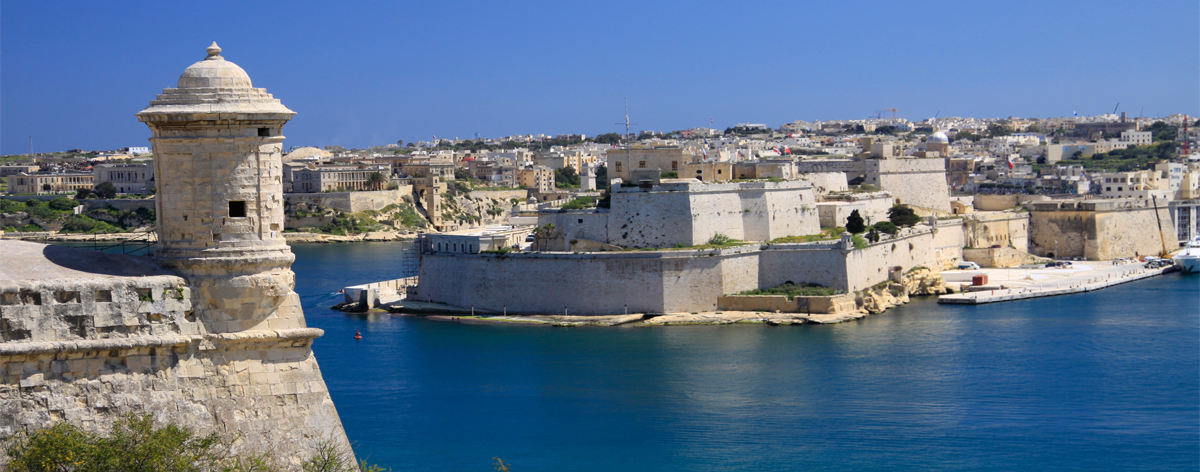
Fortress Malta. From The Knights of St John to World War Two - click here to find out more
This is a wonderfully varied and scenic tour of Malta a tiny island with a warm welcome and proud military and cultural heritage. The Second World War siege will be our main focus, but we also examine the indelible marks that other cultures and events have left behind: the unspoilt ancient walled city of Mdina, the renaissance architecture of the Knights of St John, the brief occupation by Napoleon and the extant Victorian fortifications
The Battle For Berlin - click here to find out more
The Battle for Berlin was the decisive action that brought an end to the war in Europe. The tour will focus on the fierce and bitter action from the point when the Red Army crossed the Oder River to the eventual fall of Berlin.
Wellington in Spain | A Classic Peninsular War Tour - click here to find out more
This eight-day tour, the second in our series of 'classic' of Peninsular War tours is led by award winning Peninsular War historian Nick Lipscombe. It visits some of the most beautiful and historic parts of central Spain and Wellingtons most notable battles and sieges during the period 1809 1812.
The Pompeii Experience | Archaeological delights of the Bay of Naples - click here to find out more
This comprehensive archaeological tour of the Bay of Naples and the events of AD79 not only includes the well-known and impressive remains of Pompeii and the superbly preserved Herculaneum but also those lesser known, but nonetheless important sites such as the seaside villas of the wealthy at Oplontis.
The Vietnam War | From Defeat at Dien Bien Phu to the Fall of Saigon - click here to find out more
Appealing to history and culture enthusiasts alike, this tour combines the key locations of the Vietnam war, with the stunning highlights of that country. Vietnam offers a rich culture and history, combined with delicious local cuisine with a French twist. Hanoi, with its leafy tree lined avenues, plays host to fascinating, thought provoking museums and military sites.
The Holocaust - click here to find out more
In this 8-day tour to Poland, we visit the sites of the former ghettos in Warsaw, Lublin and Krakow alongside four of the concentration and death camps - Treblinka, Majdanek, Belzec and Auschwitz-Birkenau - that played such a significant role in this genocide.
The Raise & Fall of Nazi germany - click here to find out more
This tour tells the whole story of the Rise and Fall of the Third Reich chronologically from its birth in 1919 Munich, to its bloody end in Berlin in 1945. Led by Historian Nigel Jones, this tour will visit all the significant milestones marking Adolf Hitler's ascent and Germany's descent into the abyss.
Finland 1939. The Winter War - click here to find out more
This tour follows the fortunes of the 9th Soviet Army attempting to cut Finland in two at its narrowest point in time for Stalins 60th birthday. Ex Parachute Regiment colonel and historian Robert Kershaw uses his Arctic training background and broad military experience to explain the nature of this amazing victory against seemingly insurmountable odds.
Discovering the Western Front - click here to find out more
This five-day Western Front tour provides an overview of the major events involving British and Empire forces in Northern France and Belgium: it is both an introductory tour for the novice and an essential aide memoire to those more familiar with the First World War.

History Tours & Holidays With Expert Historians
The Cultural Experience is a leading international battlefield tour , historical tour and cultural tour company offering expert led holidays to destinations throughout the world. We offer a wide range of scheduled escorted tours including archaeology, military history and general history tours all of which are accompanied by leading historians, academics or senior soldiers.
We are also a leading provider of school trips to many schools in the UK and Ireland and organise bespoke battlefield studies and staff rides for The Army, RAF, Royal Navy and other MOD establishments. We can also create a wide range of tailor made tours for individuals, small groups and organisations.
Today's Recommended Tours

Latest News From The Cultural Experience
view all news stories
Established in 2009, The Cultural Experience now offer tours all over the world. From the battlefields of the Zulu War in South Africa to the War Of the Roses in the UK, all bases are covered. If for any reason you cannot see the tour you would like to do, you can either see our future planning page or contact us to arrange your own bespoke tour.
Each of our guides are experts in their respective fields. Authors, historians, lecturers and fellows guide you through battlefields in France, America, India, Israel, Canada, Belarus and more. They guide you throughout the day, and dine with you in the evening, as all Cultural Experience tours include a three course meal in the evening.
Another benefit of a Cultural Experience tour is that a maximum of 22 passengers are accommodated on each tour. This means that we can include more in our daily activities as there is less time spent waiting for others to catch up.
All of our tours vary in the amount of physical activity involved. This is why we have added an activity level to each tour. This enables you to ascertain which tours are most suitable for you. All of the extra information about all of our tours can be found on our what to expect page.
Subscribe to Our E-Newsletter
For up to date news as well as details about all of our tours please subscribe to our fortnightly e-newsletter

Quick Links
Military History and Battlefield Tours Classical History and Archaeological Tours Holocaust Tours General History Tours Experience Tours Walking Tours Future Planning Request Brochure Site Map
The Cultural Experience 11B Mansfield Park Four Marks Alton GU34 5PZ United Kingdom
UK: 0345 475 1815 USA (toll free): 877 209 5620 International: 00 44 345 475 1815
© 2015 - 2024 Midas Tours Ltd - Hosted by SWD - Legal Info - Terms of Use - Privacy Policy / Cookies - Sign-in
Military History & Battlefield Tour Operators
These are UK-based specialist tour operators, travel agencies, and companies offering self or expert guided battlefield tours to military sites and battlefields worldwide, but mostly World War I & II, and Napoleonic war sites in Europe.
“ Others… ” (below) also lists specialists in battlefield experiences that don’t quite fit the parameters for this list. In particular there are a number of battlefield guides who are based on the continent near the sites they visit.
Others…
- Tucker Tours Richard Tucker operates small (typically for groups of up to 4 people) guided military history tours of especially selected Maginot Line defences in the Sedan/Ardennes region of France, and other niche topic tours such as his day tour highlighting the RAF Fairey Battle squadrons (and some Blenheim IVs) missions to destroy the German engineer bridges over the Meuse, 14 May 1940.
- In Krakow, Poland, Małopolska Stowarzyszenie Miłośników Historii, aka “Rawelin” , is a non-profit organisation that conducts historical research and works to protect architectural monuments, including fortifications and historic urban engineering. They run tours of some of these places including the underground emergency command centre at the Lenin Steelworks in Krakow , a 1950s time capsule.
- Battlefields by 4×4 is an interesting option. Small group guided battlefield tours for owners of 4×4 vehicles. You get yourself there and do the driving. They guide you to WWI & II sites in northern France (it’s mostly WWI. They are based in Arras) on and off the beaten track.
- African Battlefields specialise in battlefield tours in South Africa, especially the classical Victorian Military expeditions of the Anglo Boer and Zulu war Battlefields of 19th century British colonial Africa.
- Battlefields Experience, The (not based in the UK) operates WW1 & WW2 battlefield tours in Northern France & Belgium.
- Civil War Traveler is a useful website detailing historical self-drive tour and trail information to civil war sites in the USA.
- French-Tours offer chauffeur-guided tours of WWI & WWII battlefields sites in France.
- The Three Whales travel agency in Russia offers tours of major Russian World War 2 battlefield sites such as Kursk and Stalingrad.
- Best Russian Tour are the guys who do all the extreme and special interest tours in Russia (eg. cosmonaut training, MIG flights) they have many military options including visits to battleground/military museums such as the tank museum in Kubinka , Museum of the Great Patriotic War , Museum of the Battle of Borodino T-34 Tank museum , etc.
- Battlefield Tours is a Dutch operator focusing on WW2 sites in the Netherlands; so obviously Arnhem and the Scheldt, but also less well known battlefields such as Deventer, Zutphen, & Groningen.
- The Battlefield Explorer is Dutch accredited battlefield guide, Joris Nieuwint, who lives in Veghel and specialises is Market Garden tours.
This is a niche blog about technically-minded travel. It reflects my own interests in the mechanical, technical, historical, engineering, transport and military world.
COPYRIGHT © MECHTRAVELLER 2016-2024, including all images unless indicated otherwise.
APRIL SALE: Discover and book at up to 60% off!
Historical Tours & Trips in USA
Step back in time and learn the secrets of ancient times on a historical tour of USA. With 199 adventures, you're sure to visit the best historical places packed full of stories from days long ago.
Filters applied
199 historical tour packages in usa with 1,383 reviews.
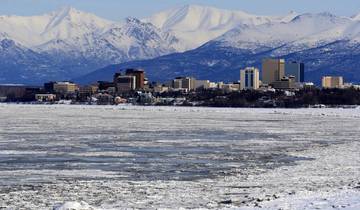
Majestic Alaska (10 Days)
It was an awesome tour. Saw and did so much. I would recommend Trafalgar to tour with. We are booked next year for The Colorful Trails of the SW in September. I want to say our tour director,Tyler Browning, is one of the best guides we have had. He is personable, friendly, caring, very knowledgeable and on top of everything. He is GREAT!
- €100 deposit on some dates Some departure dates offer you the chance to book this tour with a lower deposit.
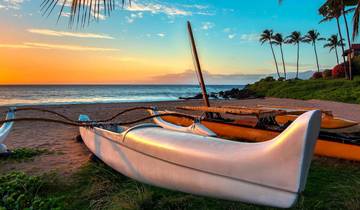
Hawaiian Explorer (8 Days, Intra Tour Air Hilo To Kahului)
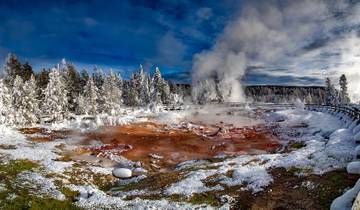
American Parks Trail (Classic, End Rapid City, 9 Days)

Enchanting Canyonlands (Classic, 7 Days)
I wanted to say excellent, but there is room for improvement. The website could be better. It required passport information with no option for "Not applicable." As a U.S. Citizen traveling in the U.S., a passport wasn't needed, but I continued to get reminders to complete my profile. Fortunately, I got an email assuring me I didn't need the passport, but I suggest updating your website. The descriptions of several days said "relaxed start," but most days, we had to be up early enough to be showered, dressed, and have our suitcases ready for pickup by 6:30 or 7:00 a.m. As an east-coaster, that was fine for me because of the time difference, but normally, I wouldn't call that relaxed. The sites were stunning, the optional activities were great, although one that I wanted to do got canceled due to a storm and there was no way to reschedule. The lodging was great at each stop and the provided meals were excellent. Some of the suggested "on-your-own" spot for meals were not so good. The change of lodging plans at the Grand Canyon was disappointing because we didn't get to see the sunrise at the Grand Canyon or the stars late the night before. Sedona, The Grand Canyon, Lake Powell, Bryce Canyon, and Zion National Park were all fantastic, and we were blessed with great weather for most of the trip. Everyone should see these wonders of God's creation.

- Food & Culinary
Tennessee Music Trail to New Orleans
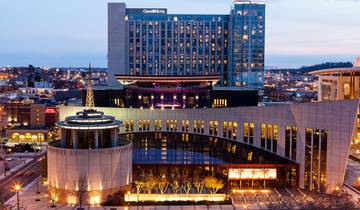
- Sightseeing
- Christmas & New Year
Georgia History Trail to Nashville

Los Angeles, Las Vegas with National Parks ROT
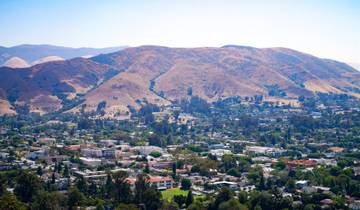
From S. Francisco to Los Angeles

- Coach / Bus
Eastern Discovery (10 Days)
It was a great experience
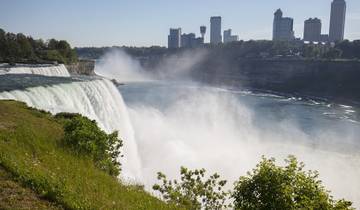
- In-depth Cultural
American Gateway – 4 Days
The first two days were good. The third day continued in another bus where WiFi did not work. Breakfast and departure times are too tightly scheduled. Either breakfast is too late or the bus leaves too early. Since the toilets in the buses are not to be used, the breaks to visit the restrooms have to be timed shorter. 3 hours ride is too long here especially for older participants without a break. The stop at the Amish could have been saved and only leads to an unnecessarily long day. All tour guides should be emphasized, they were very friendly, competent and eager.
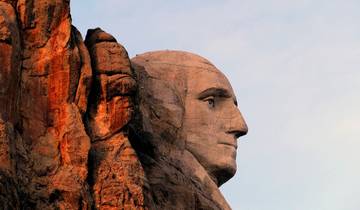
Spotlight on South Dakota featuring Mount Rushmore & The Badlands (2024)
Spotlight on South Dakota by Collette tours was a fantastic trip, 5 excellent day trips and entertaining dinner shows.
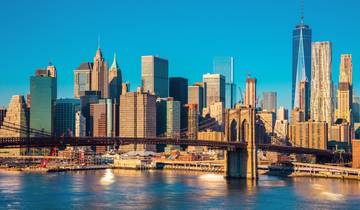
New York to Miami (10 Days)
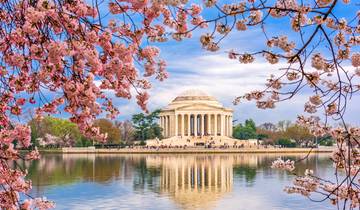
America's Historic East with Extended Stay in Washington DC
Our tour guide, Barbara Buryiak, was exceptionally knowledgeable.She was always pleasant and was able to navigate some issues that popped up during the tour—i.e. road closures to certain areas, navigating the fact that the Old Town Trolley does not run on July 4 in DC, getting us some extra site seeing opportunities (the church at Gettysburg for one) and getting those of us who went on from Philadelphia to Washington DC a new hotel when the Capital Hilton claimed we did not have any reservations—which Barbara knew should not have been the case as she had seen the rooming list at the beginning of the tour which stated that 13 folks would be returning to the hotel, spending July 3 and 4 there. She also provided us some “extras.” She knew the value of the communication and was always very positive.
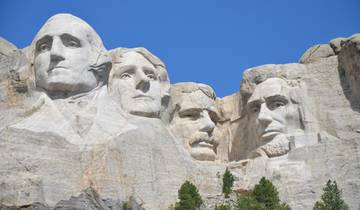
- Walking Adventure
America's Greatest Treasures with Rapid City Start
Both driver and guide were amazing. The tour overall was perfect for my 86 year old dad who was my travel partner!

USA Road Trip: Big Cities & West Coast Parks
What people love about historical tours in usa.
I wanted to say excellent, but there is room for improvement. The website could be better. It required passport information with no option for "Not applicable." As a U.S. Citizen traveling in the U.S., a passport wasn't needed, but I continued to get reminders to complete my profile. Fortunately, I got an email assuring me I didn't need the passport, but I suggest updating your website. The descriptions of several days said "relaxed start," but most days, we had to be up early enough to be showered, dressed, and have our suitcases ready for pickup by 6:30 or 7:00 a.m. As an east-coaster, that was fine for me because of the time difference, but normally, I wouldn't call that relaxed. The sites were stunning, the optional activities were great, although one that I wanted to do got canceled due to a storm and there was no way to reschedule. The lodging was great at each stop and the provided meals were excellent. Some of the suggested "on-your-own" spot for meals were not so good. The change of lodging plans at the Grand Canyon was disappointing because we didn't get to see the sunrise at the Grand Canyon or the stars late the night before. Sedona, The Grand Canyon, Lake Powell, Bryce Canyon, and Zion National Park were all fantastic, and we were blessed with great weather for most of the trip. Everyone should see these wonders of God's creation.
Regions in USA
- Sun Belt (91)
- East Coast USA (80)
- Eastern USA (80)
- Western USA (77)
- Southwest USA (48)
- West Coast USA (38)
- Northeast USA (38)
- Southern USA (31)
- California (24)
- Southeast USA (21)
- New England (21)
- Mideast USA (21)
- Rocky Mountains (17)
- Mississippi (17)
- Four Corners (17)
- Yosemite National Park (12)
Travel Styles
- USA Travel Guide | All You Need to Know
- 10 Best Backpacking Tours & Trips 2024/2025
- Best time to visit East Coast USA (Low & High Season)
- Best Time to Visit the West Coast, USA in 2024/2025 (with California)
- Best USA Vacation Spots for Couples: Parks, Cities and more
- 5 Best Guided Backpacking Trips & Tours
- Best 10 Day USA Itineraries 2024/2025 (with Reviews)
The Great Barrier Reef’s Mass Bleaching Disaster: Can Ecotourism Help?
Jesse Chase-Lubitz , Skift
April 22nd, 2024 at 12:30 PM EDT
The Great Barrier Reef is experiencing its fifth coral bleaching event in eight years. Surprisingly, tour operators are crucial in providing the research the government needs to save the treasure.
Jesse Chase-Lubitz
The Great Barrier Reef is in the midst of its worst mass bleaching event on record — a process in which warmer-than-usual water causes corals to expel their algae and turn white. Corals can survive a bleaching event, but it puts them under stress and makes them more susceptible to dying.
The tourism sector in the Great Barrier Reef has a long history of trying to lessen the harms of human impact. And in recent years, it has found that tourists can help.
The Reef brings more than 2 million tourists to the northeast coast of Queensland, Australia every year and it provides 60,000 jobs. The reef ecosystem boasts 400 types of coral, 1,500 species of fish, rare whale species and six of the world’s seven marine turtle species. It was designated a World Heritage site in 1981. However, the experience has been changing as the climate warms.
UNESCO, the UN body that oversees World Heritage sites, suggested in 2021 that the site be added to its “In Danger” list. It avoided that designation but will be evaluated again in the second half of 2024.
A History of Conservation Tourism
Tourism in the Great Barrier Reef has been conservation-focused for decades — the industry is closely regulated, caps are put on locations and tour operators, and in the past few years, tour operators have increasingly shifted their focus to educating a concerned audience about how climate change is impacting the reef.
“There have always been really conscious travelers,” said Mark Olsen, CEO of Tourism Tropical North Queensland, a non-governmental organization in Cairns, Australia. “But I think we’ve finally hit a mainstream audience, particularly travelers in their 20s and 30s who have grown up in a climate crisis and who understand that the natural world is under stress from human-induced effects.”
Passions of Paradise is among a handful of operators that offer a science tour in which tourists can dive and help monitor coral health and nurseries. Other groups have glass bottom boats that show tourists where the reef is struggling, where corals have been relocated to help them thrive, and where life is still vibrant.
One company, Reef Magic , offers visitors the chance to help replant corals outside the water. Replanting coral fragments is a highly regulated process, so most companies don’t have approval to let non-experts partake.
But Olsen says that the industry is seeing a demand for tourists who want to help, and they’re working to respond by offering hands-on activities.
Reef Research Relies on Tour Operators
Beyond tour activities, tour operators are crucial to the monitoring of the coral reef. Twenty-six tour operators are engaged in an initiative in which they provide surveys to the government. Between 2023 and 2024, they provided almost 3,500 reef health surveys to the government.
“There has always been strong involvement of tour operators in monitoring,” said Gianna Moscardo, a professor in Tropical Environments and Societies at James Cook University in Australia.
But this involvement wasn’t fully recognized until the pandemic, when the lack of tourists meant the region wasn’t collecting enough data on the reef. The Australian government realized this and started providing extra funding to reef operators to continue monitoring.
Now, the groups are not only invested in monitoring, but they’re also pulling out all the stops to limit their negative impact.
Between 2019 and 2021, at least six companies joined the Coral Nurture Initiative , a partnership between researchers and tour operators to conduct research and restore the reefs where they operate.
An operator called Tropic Wings plans to introduce a dozen battery-powered vehicles, becoming the sole tour operator in Australia with fully electric coaches. Another operator, Sailaway Port Douglas , is using the first electric glass-bottom boats.
“[Covid] was really a catalyst for more businesses to turn their enterprise toward conservation,” said Olsen.
Scientists don’t see this as an all-in-one fix for the corals — the fossil fuel emissions from international tourism are central to the problem. However, the travel industry in the Great Barrier Reef has been an essential part of how the region collects data, and the emerging partnerships could set a standard for similarly vulnerable ecosystems around the world.
“Tourism is what’s getting us the information that allows us to say, what’s the damage? What is the response? What corals are coming back?” said Olsen. “I think since December the tourism sector has collected 15,000 observations of the natural environment. It’s a proper partnership.”
The Daily Newsletter
Our daily coverage of the global travel industry. Written by editors and analysts from across Skift’s brands.
Have a confidential tip for Skift? Get in touch
Tags: australia , climate change , sustainability , tourism , Travel Experiences
Photo credit: Part of the Great Barrier Reef from above. Credit: Yanguang Lan

COMMENTS
1871: The official name of the company becomes Thomas Cook & Son. 1872/73: Thomas Cook organizes and leads the world's first round-the-world tour. The journey takes 222 days and covers more than ...
A tour operator is a business that typically combines and organizes accommodations, meals, sightseeing and transportation components, [1] in order to create a package tour. They advertise and produce brochures to promote their products, holidays and itineraries. Tour operators can sell directly to the public or sell through travel agents or a ...
The first tour operator went into business in England in 1758, and is still in business today. In Europe, pleasure travel started in earnest during the 1840s, when Thomas Cook began conducting tours to Paris and later around Europe. By the 1850s, railroad tours were already in operation. Modern tour operators - companies that organize group ...
The successful execution of the tour marked the beginning of the establishment of modern travel agency in the world. In 1845, Thomas Cook conducted the first large scale tour inside England by adding some entertainment activities in the tour package. The objective was to enhance the value of package and create certain appeal.
Travel agency in Taiwan. A travel agency is a private retailer or public service that provides travel and tourism -related services to the general public on behalf of accommodation or travel suppliers to offer different kinds of travelling packages for each destination. Travel agencies can provide outdoor recreation, arranging logistics for ...
Travel agencies and tour operators are two related but can be independent business models that operate as intermediaries between suppliers and tourists. In many cases, travel agencies are also tour operators and vice versa, particularly in countries other than the United States. This is understandable considering the history of their evolution ...
Escorted tour operators are generally faring much better, as more enter middle age with disposable income and time to spare. Many medium-sized companies have disappeared, but there are still plenty of small tour operators offering the kind of holidays that their owners enjoy. In some ways, then, the wheel has turned full circle.
Tour operators and brands in the travel industry need to rise up to meet the demands of consumers, as well as educate travellers on sustainable practices both at home and abroad. Bringing it all ...
Fast forward to today, in 2023, and the tour operator industry has transformed significantly. The advent of technology and the digital revolution have brought forth new best practices that address many of the pain points from 20 years ago. First, online booking systems, which started to surface around 2005, have streamlined the reservation process.
1972 - 1974. United States Tour Operators Association (USTOA) is founded by a small group of California tour operators who recognize the need for a unified voice to protect the traveling public, as well as represent the interests of tour operators. In 1974, H. Don Reynolds, a former assistant director general of the Air Traffic Conferences for ...
United States Tour Operators Association (USTOA) is a professional, voluntary trade association created with the primary purpose of promoting integrity within the tour operator industry. ... The association made history in 1976 when it became the first travel organization to establish a consumer protection fund, followed by a $100,000 per ...
Tour operator is an organization, firm, or company who buys individual travel components, separately from their suppliers and combines them into a package tour, which is sold with their own price tag to the public directly or through middlemen, is called a Tour Operator.. More precise tour operators are primarily responsible for delivering and performing the services specified in a given ...
The major difference between tour operator s and travel agencies is in the system of providing service to customers. A tour operator is a company that buys certain services from different companies (like hotels, restaurants, cafes, beauty salons) and forms a single tourist product out of them using its own pricing system.
In recent years, the TUI Group has developed into one of the world's leading tour operators. The journey began in December 1968 when several German tour operators joined forces to form Touristik Union International. Here we have summarised the most important milestones: 1968: The "Touristik Union International" is being formed.
Brownell Travel markets itself as the oldest tour operator in the United States, having arranged an archaeology-focused trip to Switzerland for 10 American travellers in 1887 (at a time when ...
Our History tours focus on significant events, encounters and destinations, from castle-builders and conquest in medieval Wales to The Making of Argentina; from forces that shaped the Western Balkans to the passion and politics of civil war Spain. Acclaimed historians provide context and analysis on in-depth journeys through place and time.
1534: Explorers of the day, such as Jacques Cartier, were some of the first tourists to what is now called Canada. 1836: The first railway was launched. 1885: Banff was established as Canada's first national park. 1892: Early tourism promotion. As early as 1892, enterprising Canadians like the Brewsters became the country's first tour ...
Company History: Airtours Plc is one of the largest integrated tour operators and travel agents in the European and North American markets. Based in England, where the group is the second largest holiday package vendor after Thomson Travel Group, Airtours has been expanding rapidly in the late 1990s, achieving leading tour and travel positions ...
Romney Marsh: The Fifth Continent. "Having been touring archaeological sites in many parts of the world for 50+ years, I can honestly say that your Cyprus tour was outstanding in my experience." Hidden Historian, Aphrodite's Cyprus. History & archaeology tours exploring Europe & the Mediterranean. Expertly guided, relaxed & enjoyable.
History Tours & Holidays With Expert Historians. The Cultural Experience is a leading international battlefield tour, historical tour and cultural tour company offering expert led holidays to destinations throughout the world. We offer a wide range of scheduled escorted tours including archaeology, military history and general history tours all of which are accompanied by leading historians ...
Expert & traveler reviews, photos, videos, itineraries. Find the best History tour company for your style and budget: Exodus Travels, Intrepid... Search Search Tours. Design custom trip. ... Search 490 History tour operators and travel companies, with 16,844 reviews. # 1. of 490. matches. premier. Exodus Travels. 4.7. 18,069 reviews. 31 trips ...
01989 565599. Family run operator offering private battlefield tour services to WW1 & WW11 sites in France, Belgium, Germany, Holland, UK & South Africa with a team of expert guides, and for tailor made 'geneology tours', research for following in the footsteps of ancestors is free of charge on booking. Leger. 01709 385 624.
Sedona, The Grand Canyon, Lake Powell, Bryce Canyon, and Zion National Park were all fantastic, and we were blessed with great weather for most of the trip. Everyone should see these wonders of God's creation. Find the right USA Historical tour for you with TourRadar. Choose from 216 trips with 1384 customer reviews.
A History of Conservation Tourism. ... Reef Research Relies on Tour Operators. Beyond tour activities, tour operators are crucial to the monitoring of the coral reef. Twenty-six tour operators are ...